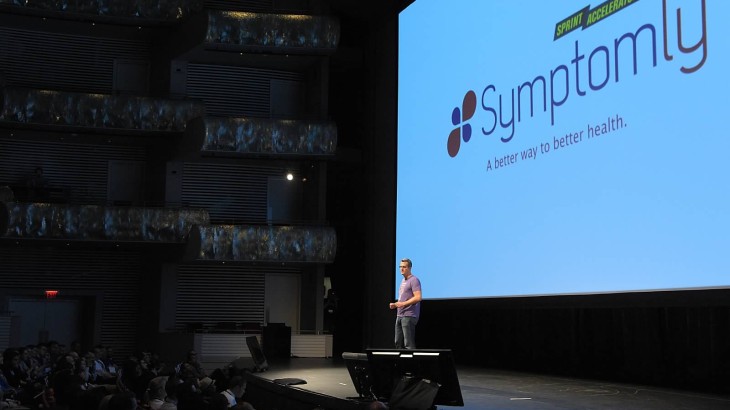Symptomly, a University of Utah startup developing technology for health providers and patients to track health symptoms, recently concluded a three-month stay in Kansas City with Demo Day at the Sprint Mobile Health Accelerator by Techstars.
On June 12, more than 1,500 people attended the Kauffman Center for the Performing Arts to hear the teams present their company vision. Sprint CEO Dan Hesse and Techstars CEO David Cohen gave opening remarks, which were then followed by each teams presentation.
“It was the perfect ending to the Sprint Mobile Health Accelerator powered by Techstars following 90-days of focused energy, progress and mentorship,” said Derek Bereit, CEO of Symptomly. “It is also the launch of Symptomly’s next chapter, including hiring team members and expanding our customer base from the Intermountain West through the Midwest.”
The Techstars Symptomly team includes co-founders Derek Bereit and Dillon Lee (formerly with the U’s Technology and Venture Commercialization office), Cade Lubeck (Weber State ’14), Matthew Allred (U undergraduate), Royal Bateman (Weber State undergraduate), and Bob Durkin (of Boulder, Colo.). The U researchers who invented the technology include Chris Maloney, Flory Nkoy, Bern Fassl and Bryan Stone.
Symptomly plans to hire developers and expand operations around Kansas City-based healthcare organizations, including customer Children’s Mercy Hospital. The company will also maintain a strong presence in Utah, where their research team, pilot clinics and insurance customers are located.
The Symptomly platform is a clinically-validated, web-based dashboard, mobile app and communication portal for primary care providers and patients to effectively track patient-entered health symptoms. Its first product is eAsthma Tracker, a patient-entered data system for child asthma, developed by researchers at the U and Intermountain Healthcare’s Primary Children’s Medical Center. The platform has over $4 million in current and previous research — validating a reduction in child asthma re-admissions from 40 percent (nationally) to only 2.3 percent.
Learn more at www.symptomly.com.



